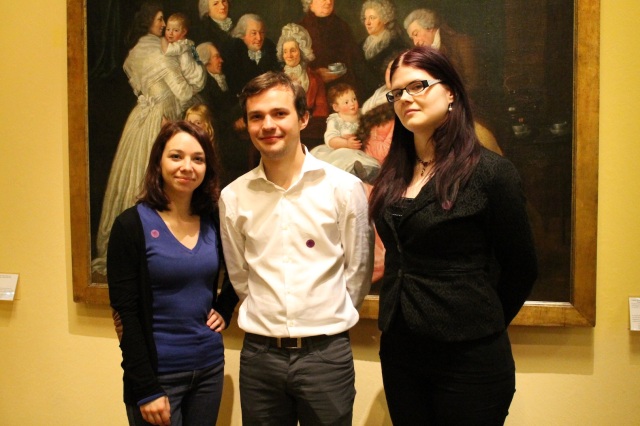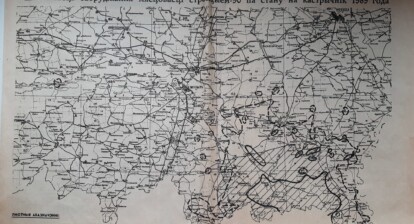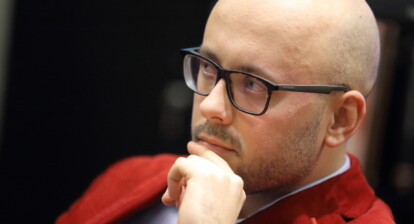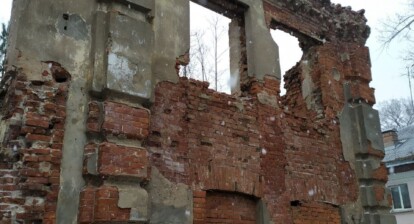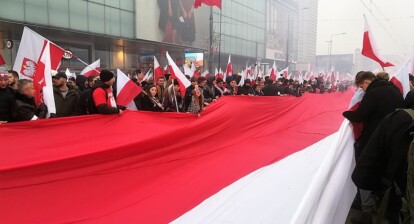During the workshop ‘Desire for Freedom’ Mare from Estonia conducted an
interview with Sofia (Finland), Sławomir (Poland) and Darya (Belarus)
How do you feel about the situation of freedom in your country? How is it restrained?
Sofia: Excellent. Not only are the human rights guaranteed to a great extent, I think we have one of the closest things to equal opportunity as well.
Sławomir: I think there is a lot of freedom in my country, but on the other hand people are not taught how to use it. There have been some bad times that have shown, that not everyone’s freedom is accepted by the society. But I guess we are heading in a good direction.
Darya: In our country, we are in some ways restricted. Not everybody is free. The restriction of the freedom of expression, the impossibility to have privacy is pursued in a hidden way, there are rumors saying that if you have a big business, a successful company, it can be taken away by the government. Education is controlled; it’s a strong and rigid system, raising children to be controllable citizens. There is also freedom of movement, going abroad is not simple, people are heavily surveiled and you can’t go abroad if considered enemy of state, they can find a random reason to arrest you.
How has this week broaden your views and perspectives on freedom?
Sofia: It is impossible for views not to broaden when 15 people from different countries converge. Europe is very diverse; situations vary even in neighboring countries.
Sławomir: It hasn’t actually, but I’ve had the opportunity to learn how other people from different countries perceive freedom.
Darya: Personal freedom for me is to be able to do what I like, but at the time being respectful to the the society.
From what you have heard from the other participant’s countries, how is their situation compared to yours? Have you learned anything that has surprised you?
Sofia: Without gloating, I do feel that my country is a forerunner, but that was also expected when looking at the countries represented, in that way nothing has significantly surprised me.
Sławomir: No. It is pretty much obvious that there’s less freedom in Russia and Belarus, and the EU countries are freer. Looking at Sofia, I was really surprised how free the Finnish are, I wasn’t very aware of their situation.
Darya: It seems participants from other countries are freer, but at the same time no one can be completely free, even according to the Declaration of Human Rights. I was surprised when Sofia said you can’t open a pharmacy in her country without a medical degree, and the government can still forbid it, which is opposite in Belarus. The medical system is not that good in Belarus, doctors are underpaid and quitting their jobs for a better paid one.
What has been your favorite part of the program?
Sofia: Apart from the mission of creating art in a Eustory project, which is rare, the guided tour on the Berlin Wall grounds, because it was an uncharted territory in my knowledge of modern history.
Sławomir: Preparing our piece of art, we had a lot of fun in the process.
Darya: Visiting the exhibition and writing text about it, because it’s interesting to find your own interpretation of somebody’s art.
What is your prediction for the future of the world, in terms of freedom and peace?
Sofia: Finnish people tend to look back rather than forward, which is not always beneficial, there tend to be these rose-tinted glasses, but I like the quote “We live in the best of times.” I think everything is as it should be, because everything has led to this.
Sławomir: I would like to hope we’re heading in a good direction. But I know human nature a bit, and that full freedom and peace in the world is not possible.
Darya: I hope for the best, but still I think many countries are far from freedom and the complete implementation of the declaration of human rights.

